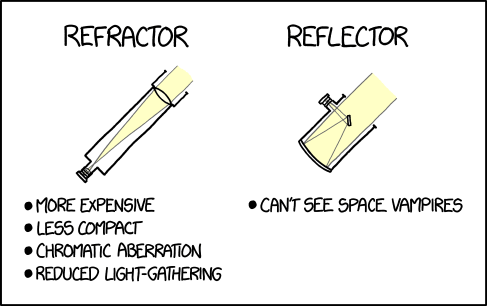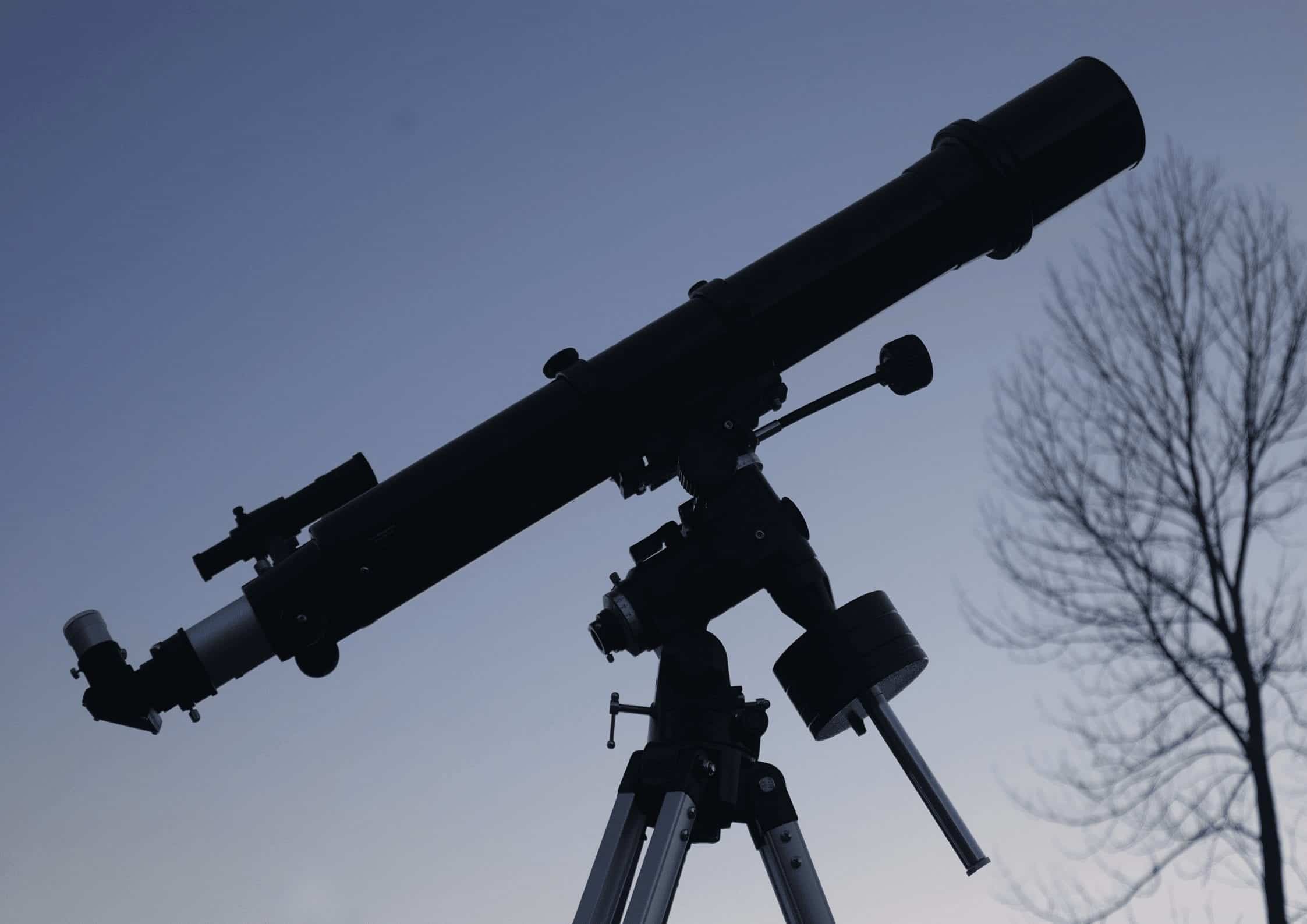
Of the two scopes you mention, the refractor is likely to do better at low power wide field views than at high magnifications. With entry level scopes, you'll probably find that a dobsonian style mount (as used by many reflectors) is more stable than the tripod for a refractor entry level scopes are built down to a price point, and for scopes with a tripod, that usually means that the tripod is fairly flimsy and vibration prone - so it may take a little while to settle down after adjusting something (either pointing or focus). Note that newtonian reflectors aren't really suited to non-astronomical uses, while refractors usually do better for terrestrial use (depending on the diagonal, you may end up with a left/right reversed view, but at least it won't be upside down). On the other hand, refractors don't have a central obstruction, and tend to give higher contrast views than an equivalent sized reflector - but reflectors don't suffer from chromatic aberration (but fast reflectors suffer from coma, which refractors don't). Reflectors have the advantage when you're looking for a large light bucket you can get reflectors with much bigger apertures (8 to 16" or larger) than you can with practical amateur refractors (around 6" or so). However, don't get too hung up on magnification - it's handy for looking at planets or the moon, but many deep sky objects actually look better at lower magnification a bigger scope helps here because it captures more light. You can get more expensive refractors - ED or Apochromatic ("Apo") designs that have much better colour correction than achromats, but the cost goes up significantly. By contrast, reflectors reflect all colours of light the same, so don't suffer from this. This usually shows up as a violet halo around bright objects, which makes the high magnification performance suffer (slower long tube refractors - with larger f-ratio numbers are less affected than fast, short tube refractors). Inexpensive refractors are usually what's known as "achromatic" - they don't focus all colours of light at the same point, which causes what's called "chromatic aberration". However, other factors also come into play. What they fail to say is that seeing conditions good enough to allow it can be rare. Given good seeing conditions (steady atmosphere) you can go to around double that magnification, which is closer to what what manufacturers usually quote. For everyday conditions, the maximum useful magnification is around the scopes aperture in mm (and you get it with an eyepiece with focal around the focal ratio of the scope - so around 6mm for an f/6 scope. The bigger the scope, the higher the maximum useful magnification. Theoretical maximum magnification is detemined by aperture - the size of the objective lens (for refractors) or primary mirror (for reflectors). Magnification is calculated as scope focal length / eyepiece focal length (so shorter focal length eyepieces give you a more magnified result).Īnd the more you magnify, the more the captured light is spread out, so the image gets darker the more you magnify it.Īlso - and more importantly - you eventually get to a point where magnifying the image more doesn't show you any more detail, it just gets bigger, dimmer, and fuzzier. So will I settle for magnification if I get the refractor instead of the reflector, or are they basically the same and in that case I would choose the refractor (meade) over the reflector since it is more compact, and is also easier for beginners like me? For example, Saturn's rings according to some reviewers are "clearly visible" in the reflector, but not so with the refractor which most reviewers agree, Saturn will be very tiny and the rings barely visible.

Just judging from the reviews it would seem like the reflector (orion) wins the fight.

The question really is, a reflector vs a refractor, which one is more desirable in terms of magnification, and how much of a difference does it make? My question is, is a reflector necessarily better than a refractor in terms of magnification and sharpness of image? The orion does have a slightly bigger aperture (half inch bigger) but I don't think that makes a huge difference. The orion starblast 4.5 on the other hand is a reflector and therefore more clumsy. I like the Meade 102 mm (or 4 inches) because it is a refractor, which means it is more lightweight and compact. Theyre both the same price so this question is not about the money, but about getting the most out of your money. I'm thinking about getting a telescope and i'm debating between these 2 telescopes: meade and orion.


 0 kommentar(er)
0 kommentar(er)
